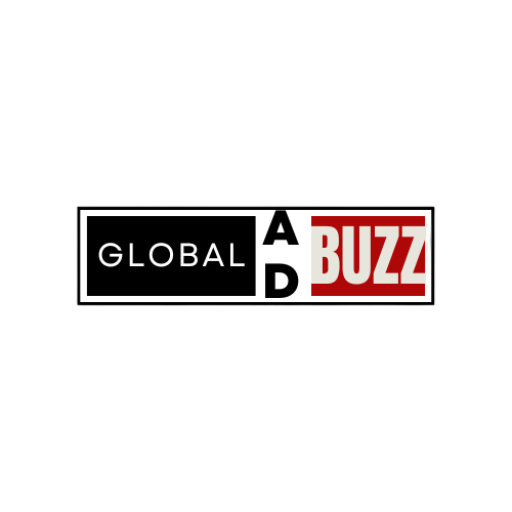In today’s rapidly evolving digital and technological landscape, staying ahead of the latest trends can be challenging. This article provides an in-depth look at the most important developments in generative AI impacting the marketing industry. From new tools and content labelling to voice cloning controversies and licensing deals, we’ll explore how these changes are transforming marketing practices and what they mean for brands.
Generative AI: The New Frontier for Marketing
Understanding Generative AI
Generative AI refers to artificial intelligence systems capable of generating text, images, audio, and other media content. These systems, such as OpenAI’s GPT-4 and DALL-E, use deep learning techniques to produce content that mimics human creativity.
The Rise of AI in Marketing
The integration of AI in marketing is not new, but the advent of generative AI has accelerated this trend. Brands are leveraging AI to enhance creativity, streamline processes, and improve audience targeting. The ability to generate personalized content at scale is particularly appealing to marketers.
New AI Tools for Brands
TikTok Symphony AI Suite
TikTok has joined the ranks of tech companies incorporating generative AI into their ad businesses with the launch of the ‘TikTok Symphony’ AI suite. This suite offers features that assist marketers in writing scripts, producing videos, and enhancing existing assets. Additionally, it helps determine the best creative and audience for campaigns.
Meta and Google’s AI-Powered Features
Meta and Google have also unveiled new AI-powered tools that enable advertisers to generate images and text for branded content while maintaining the brand’s unique voice and tone. These tools are currently in the trial phase but are expected to roll out more broadly throughout the year.
The Drive to Boost Ad Businesses
These developments reflect a broader trend among ad-funded platforms to enhance their ad offerings. By integrating AI, these platforms aim to provide more efficient and effective advertising solutions. WFA is coordinating with online platforms to organize sessions exploring these new tools and their implications for brands.
Labelling of AI-Generated Content
The Coalition for Content Provenance and Authenticity (C2PA)
OpenAI has joined the C2PA, an industry initiative launched by Adobe, Arm, Intel, Microsoft, and others. The coalition aims to develop technical standards for labelling and certifying AI-generated content, addressing concerns about misleading information online.
Labelling Initiatives by OpenAI and TikTok
OpenAI has announced that content created through its video generator Sora will be labelled as AI-generated. Additionally, a new model has been introduced to predict whether an image originates from DALL-E 3. TikTok, as part of its partnership with C2PA, will also automatically label any AI-generated content uploaded from external sources.
The Importance of Content Provenance
Labelling AI-generated content is crucial for maintaining transparency and trust. It helps prevent the spread of misinformation and ensures that consumers can distinguish between human-created and AI-generated content. This is particularly important for brands to avoid inadvertently funding harmful AI-generated content.
Licensing Deals with News Publishers
Partnerships with Major News Corporations
Several major news corporations, including The Financial Times and News Corp, have announced licensing deals with OpenAI. These agreements allow OpenAI to use content from their publications to train its models. In return, ChatGPT users can access attributed summaries, quotes, and links to content from these publications in relevant queries.
The Context of Licensing Deals
These licensing deals come amid ongoing lawsuits filed by news publishers against AI developers for allegedly using journalists’ work without permission. By securing these deals, AI developers aim to mitigate the risk of copyright infringement and ensure ethical use of content.
Impact on Brands
WFA research indicates that over 55% of global brands are concerned about copyright and intellectual property risks associated with generative AI. Licensing deals may alleviate some concerns, but brands must still be vigilant to ensure their AI-generated content does not replicate existing creative works.
Voice Cloning Controversies
The Launch of GPT-4o
OpenAI’s GPT-4o, a new version of its chatbot, generates a combination of text, audio, and image outputs. However, a live demonstration of one of its new voice assistants, ‘Sky,’ sparked controversy when commentators noted similarities to actress Scarlett Johansson’s voice. The actress accused OpenAI of copying her voice, leading to the removal of the particular voice option from ChatGPT.
The Risks of Voice Cloning
This incident highlights the potential risks associated with AI-generated voice cloning. Individuals may find their likeness replicated or “deep faked” in AI-generated content without their consent. For brands, this raises ethical and legal concerns about using synthetic voices in marketing creative.
Industry Response and Guidelines
A recent WFA benchmark found that 50% of global brands have restrictions on the use of AI-generated voice in marketing. In response, WFA plans to launch workshops to develop practical guidance on the responsible use of generative AI, including synthetic people and voices.
Regulatory Developments in AI
AI Transparency Laws in Utah and Colorado
Utah and Colorado have become the first US states to pass comprehensive laws regulating AI use. Utah’s law requires companies to disclose when consumers interact with their AI systems and holds them accountable for their AI tools’ actions. Colorado’s Artificial Intelligence Act governs high-risk AI systems and mandates protections against AI discrimination.
Implications for Marketers
These regulatory developments underscore the need for marketers to stay informed about AI laws and ensure compliance. Brands must consider the ethical implications of AI use and implement safeguards to protect consumers from potential harms.
Conclusion
The rapid advancements in generative AI are reshaping the marketing landscape. From new tools and content labelling to voice cloning controversies and licensing deals, these developments present both opportunities and challenges for brands. By staying informed and adopting ethical practices, marketers can leverage AI to enhance creativity and efficiency while maintaining consumer trust and compliance with regulations.





